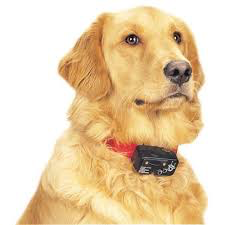
In the dog community, there is a longstanding debate on the use of training collars. The issue has received wider attention recently in Canada due to the province of Quebec outlawing the use of shock and prong collars with heavy punishment being levied against those who refuse to comply. You guys have heard me say many times, a training collar is just that…it is a training tool.
note: for the purposes of this article, I am including any training device into this category. Head and bdy harnesses, martingales, slip chains, prongs, heavy coat collars all fall under the heading “ training collar” for this article.
If used, a training collar should be for training purposes only, be fitted properly and only if one is taught how to use it correctly. Most training collars are like that. I do not care whether it is a martingale, a gentle leader, a body harness, a slip chain or a prong collar. You need to learn how to use it. Each can have their benefits. Each can be effective depending on the owner and the dog as long as they are used correctly. I do not recommend anybody go pick up a collar and learn to use it through trial and error. That is when damage can occur. The potential for damage increases exponentially when using a prong collar and even more when using a shock collar.
I got tagged this morning in a thread on another group. The discussion focused on the use of shock collars. The original poster owned two dogs and wanted a tool that would ensure his dogs came when called off leash. He wanted to pick up a shock collar for both. He wanted opinions without judgement. The discussion took place and involved the use of shock collars for controlling barking and using them in the case of an e-fence.
I resisted jumping in as these threads can be very emotional. The likelihood of people getting their backs up is huge. However, when I got tagged a couple of times by people asking for my opinion, I decided to contribute. I thought I would post the response here as I think people may like to see it. It may make some think before purchasing. So here is my response.
"Heather… you like putting me on the spot here don't you? I have been following this thread as Freddy mentioned my name in his response, have gone to respond a couple of times but resisted. Ok, so here is my opinion on the use of shock collars... without judgement...
For 99 percent of the issues people are encountering, there is no need to use a shock collar. The use of a shock collar is based on training using completely negative reinforcement/positive punishment. Do not kid yourself...the principle behind the shock collar is that if the dog does not do something (in the case of this thread, it is a recall), the dog gets a shock. Even when the response is another stimulus (as in the case of the beep), the promise of the shock is there. It is uncomfortable for your dog at best, painful at worst. Pain is a motivator but it is rarely suitable and there are usually better ways of achieving desirable behaviour (read this one, this one, and this one for introductions to better ways of doing things).
One of the things that concerns me about the responses in this thread is the belief you can just pick up a shock collar, start using it and through trial and error, you will achieve the desired results. This is a cruel way to approach the situation. It is like having a child and letting them go around touching everything in the house in an effort for the child to learn what things he can and cannot touch.....it is dangerous and completely unnecessary.
If you choose to use a shock collar, you really should consult with a professional and learn how to use it. The dog must be properly conditioned to it. Time and effort has to be invested in order to properly teach the behaviour first. The dog has to be conditioned to the stimulus. This is a must.
I cannot overstate this….IT IS A MUST!!!
Do not kid yourself you can achieve this properly without the training as if you could do so, you would not need the shock collar in the first place. Without this learning experience, again, you are just being cruel to your dog. That is not a judgement at all, it is a fact. Using a shock collar should not be a trial and error thing. The use of a shock collar is complicated and can mess up your dog. You are asking your dog to learn what the collar means through trial and error when you have no clue what you are doing. If you choose to do it this way, do yourself and your dog a favour, pick up a second shock collar triggered by the same mechanism as the one you have on your dog. Place it on yourself. When your dog's collar goes off, so will yours. The trail and error process will be much more beneficial in this case as you will have to learn quickly the right way of using it and be much less likely to use it incorrectly. This may sound crazy but I am serious.
There are much much better ways to teach a recall that does not involve this. I am not saying that there is no place for shock collars in the world but I am saying their use is dangerous, the results can be catastrophic if used wrong and the likelihood of using them wrong is astronomically high. Please please please, if you are going to use one, consult with a professional first, get trained in how to use them and only use them if the professional deems it appropriate.
Just because you CAN order it up, does not mean it is not dangerous. I can order a plane to be delivered to my house. Just because I can does not mean I should sit my ass in a pilot seat and try flying the damn thing. Without the training and learning how, disaster will happen.
As for the electronic fence. These can be a necessary evil especially when you live somewhere where you cannot put up a physical barrier. Like the shock collars discussed above, the e-fence needs to be used correctly. Dogs need to be conditioned to the collar, and boundary training needs to be done. If this does not occur, you are again asking your dog to learn through trail and error which, as explained above, is just cruel. If you do not think it is, put the collar on yourself, get a friend to take the fence and set it up on your backyard hiding it ina random grid. Turn off the beeping on the collar as you already know what the beeping means, your dog does not. Go into your backyard and through trail and error try to find where the wire is placed. Ouch. It is mean. Yes it can be done but you are going to receive a lot of shocks first. This is what you are asking your dog to do.
The other thing I want to bring up with the e-fence and a point Freddy mentioned is that, it does not keep other things out...which is dangerous for your dog. And at times a dogs drive means they will bypass the fence entirely. A cat outside the perimeter, the dog runs and jumps flying through the e-barrier. Now the dog is stuck outside and cannot get back in.
It is a bandaid approach at best, and gives you a false sense of security. You will still need to directly supervise your dog any time they are outside.
Ok, so that is my write up on both. Again, if you use either, it is your choice. Please please please, take my warnings for what they are. What I write is based on a decade of training, a couple of decades of studying behaviour, three university degrees, using and seeing these tools in operation. If you are going to use them, seek training in how to do so and put the training in...there really are no short cuts. If you decide to take the short cut, get two collars as I mentioned and follow the direction in both examples. You will be less likely to use them incorrectly if you do so."
